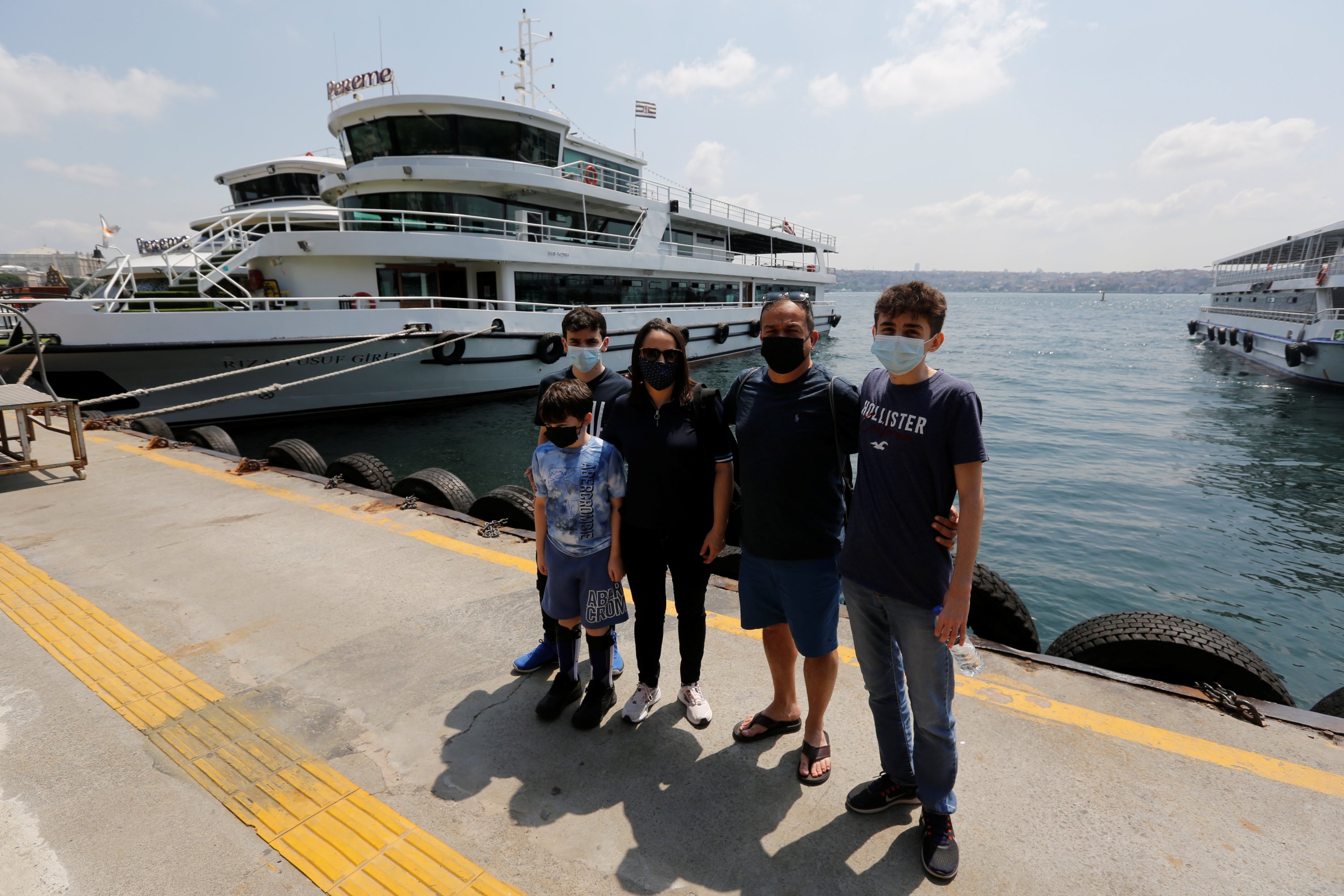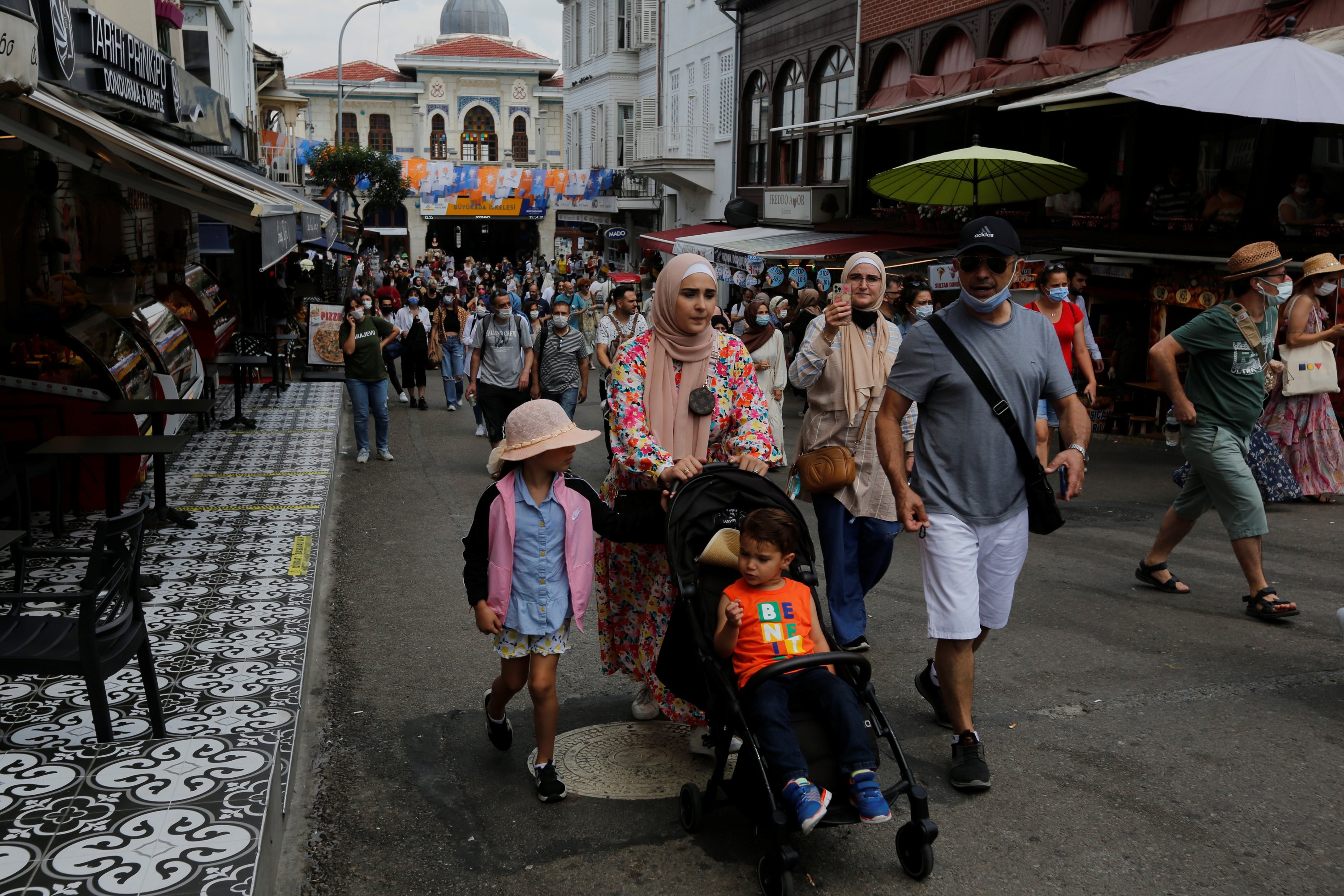© Turkuvaz Haberleşme ve Yayıncılık 2024
Arab visitors attracted by quarantine-free travel and affordable prices are helping bolster a rebound for Turkey’s tourism industry, as it looks to plug the gap left by Britons, for whom the country remains off-limits.
Holidaying with his family in Istanbul, Jordanian Omar Zahra, 48, said flying there from Amman was a better choice than Gulf destinations, where a failed COVID-19 test would lead to quarantine, or ones in the European Union, which briefly banned travelers from Jordan.
“You don’t have to go to Europe. It is a lot more expensive ... and they still have some restrictions,” he said this week on a Bosporus strait boat tour as nine Jordanians sipped Turkish coffee and snapped pictures of Ottoman-era palaces.

His sister Muna Abuzahra asked the tour guide whether they would sail near the Abud Efendi Mansion on the waterfront, where the Turkish TV series “Noor” – one of the most popular shows in Arab nations – is filmed.
“This is the best place to go for price, culture, nature, food and weather,” Zahra added.
Turkey’s tourism sector accounts for up to 12% of the economy and is a key source of foreign revenue to offset big trade imbalances.
Last year the sector was hit hard by the COVID-19 pandemic. From 2019 to 2020, arrivals dropped 69%, and revenues fell from $34.5 billion to $12 billion.
Officials expect this year's profit margins will return closer to pre-pandemic levels, despite the surge of COVID-19 cases that prompted a partial lockdown in May.
Some 936,282 tourists arrived in May, jumping by a whopping 3,038% from just 29,829 in May 2020, according to the Culture and Tourism Ministry data.
The figure was still a fraction of the 4 million who came in 2019 before the pandemic hit.
Arrivals in the January-May period were down 14.27% to 3.68 million, compared to 4.29 million a year ago. Some 12.75 million tourists arrived in the five-month period of 2019 before the pandemic hit.
In the first week of July, airport passenger numbers were at their highest since the pandemic struck, according to the State Airports Authority.
Flights from Russia, Turkey’s biggest source of holidaymakers, resumed last month and Germans, the second-biggest source, are also making reservations, travel industry executives say.
But the absence of Britons, for whom it remains a red list destination restricted for all but essential travel, in part meant Turkey’s international air traffic was still down 52% in June compared to June 2019.
Meanwhile, quarantine-free travel and affordable prices have boosted demand from the Middle East, executives say.
“We see a huge demand and high-budget reservations from Jordan ... For now, it seems to be our top market in the region,” said Serdar Ali Abet, chair of Karnak Travel, which mainly specializes in Gulf and Middle East markets.

With holiday traffic from Qatar and the Palestinian territories also on the rise, he estimated Arab holidaymakers would reach 50% of pre-pandemic levels this year, held back in part by political friction with Saudi Arabia and the United Arab Emirates (UAE) and by Lebanon’s economic crisis.
Citing demand from Kuwait, Ülkay Atmaca, general manager of Innvista Hotels Belek, said Turkey’s Mediterranean hotels were doing better than expected, though reaching 2019 levels this year was impossible.
Jordanian Abuzahra had returned after vacationing in the Mediterranean resort city of Antalya a few years ago.
“We heard about Istanbul so much,” she said. “If you want to go to (Jordan’s) Bethany, the Dead Sea or Aqaba, you will spend much more than here. It is a good choice and a good price.”
